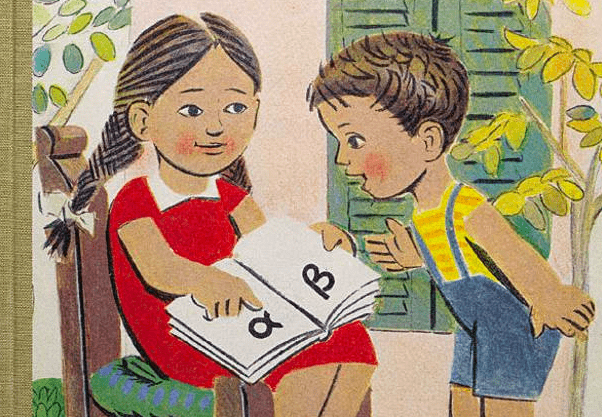The world we live in is a global village, and as such, personal and professional opportunities for all of us are now expansive. Children of today have the realistic option of travelling to, and even moving to, a different country than the one they were born and raised. This is one reason why the skill of speaking a second language is especially advantageous to our younger generations.

Not only does fluency in a second language open up a whole new world of possibilities to your child, but studies have uncovered numerous health, social and intellectual benefits as well. You can expect sharper brain functions, including listening, memory recall, better problem solving, improved critical thinking, greater cognitive flexibility, and verbal and spatial abilities.
For children of the diaspora, learning a second language can promote a firm connection with and appreciation of their Greek heritage.
Giving your children the gift of speaking and understanding Greek is an important decision that you need to commit to as parents and as a family. Set aside the time in your weekly schedule to share your passion for being Greek with your kids.
You can never start too early. Babies recognise speech patterns from the moment they are born (possibly even in the womb), so the more you expose your baby and toddler to spoken Greek, the easier it will be for your child to pick up its unique sounds. If you are not confident with your own Greek, this doesn’t mean your child has to miss out. There are so many opportunities for your child to hear Greek spoken, including on TV, in Greek videos online, with other members of the local Greek community, etc. Parents everywhere love pointing out objects and saying the word to their toddler; you simply teach them both words for the object – the English word and the Greek word! Take every opportunity to expose your child to the Greek language.
Older children will benefit from educational books and activity books, like Trip to Greece. The most effective resources should contain a mixture of colourful illustrations, an interesting narrative in English, and Greek keywords to practise and learn. Many city locations around the world offer Greek schools for children of the diaspora. Take part in Greek community events, and encourage your child to make friends with other Greek kids. Why not create activities (books, stories, riddles, games) to make the process of learning Greek a fun way to spend quality time together as a family?
Of course, the ultimate “teacher” is a trip to Greece, so your child can experience the language in its natural context.


